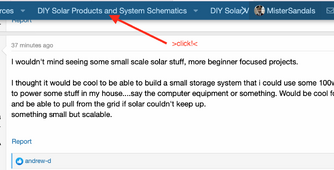JWLV
-.-. --.-
- Joined
- May 27, 2020
- Messages
- 562
Even more dangerous. My opinions and judgments would slip through. I deleted 600 videos from YouTube before I focused on solar for good reason lol. Ok back to solar! Haha
I only have a few judgements at Costco: That's expensive, too many people here, ooh they have sushi now, what happened to the churro?
And at Olive Garden: This tastes good, this tastes bad, where the hell is the server?



